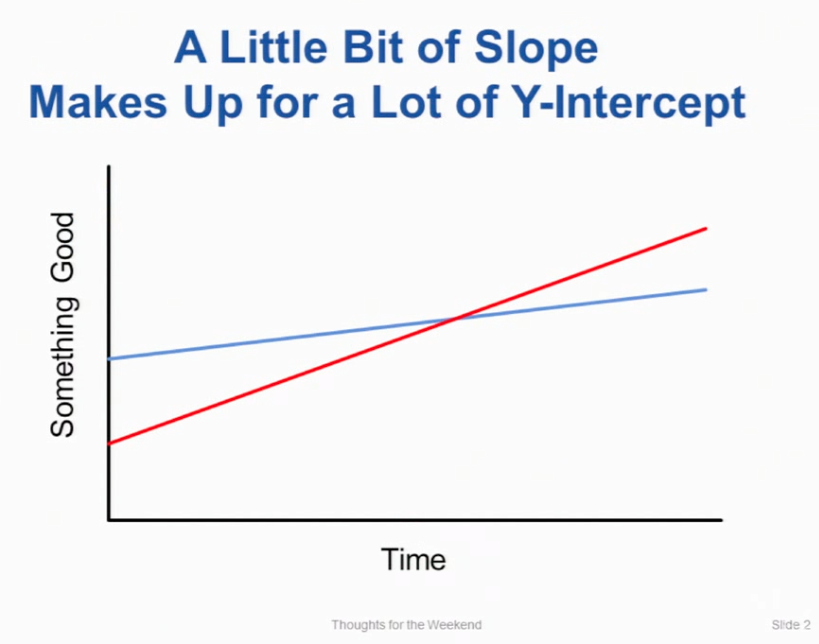
A little bit of slope makes up for a lot of y-intercept
Recently, one of my high school friends reached out to me as a part of his graduate scheme for some background on my career.
I was honoured that Matt wanted to know more about my career and it gave me an opportunity to reflect on the intuitions that I’ve followed to get to where I am today - which is hopefully still quite early in my career.
Below I’ve attached my partial reply to his email.
Hi Has,
I’ve got a training module next week and as part of the prep I’m meant to email two people whose careers have interested or inspired me, and ask them the following questions.
- What they did to make themselves successful?
- How they managed their development?
- What tips they would share with your graduate group about developing oneself within National Grid?
Please can you get back to me by COP Monday.
Best regards,
Matt
Hey Matt!
Thanks for thinking of me for this - even though I’m not quite convinced I’m “successful” right now but I answered the questions below to the best of my ability.
What they did to make themselves successful?
I don’t think there’s any one specific behaviour that I’ve done that’s given me an edge in my career but I do have a few of intuitions that have guided me for the past few years - here are some of the more important ones:
Humans are persistence hunters
It’s widely believed that the earliest humans hunted via persistence hunting which involved tracking & pursuing prey over large distances for many days - in fact it's one of the distinguishing features between humans and other primates.
The mental model I’ve used across my career has always mimicked a persistence hunt:
- Set an ambitious goal
- Run into problems - sometimes almost immediately
- Conspire a plan around those problems
- Implement the plan with maximum effort
- Face a new set of problems
And, so far this process has kept repeating but each cycle I can feel myself slowly getting closer to my ambitions and turns out that this process is pretty common intuition - in fact here’s a video by Ray Dalio explaining the concept far better than I did:
A willingness to re-evaluate your goals
It’s really important that if you’re going to follow the mindset of a “persistence hunter” that you are still willing to adjust your short term goals in order to take advantage of new opportunities or to avoid problems where the downside risk is just far too great.
The way I see it is that there’s no point in chasing a healthy kudu across the savannah if you happen to come upon an injured bison and sometimes it’s better to let go of a goal then to become trapped by an obstacle that could ruin you.
I know that the intuition behind letting go off goals can be a bit unclear but hopefully this video can act as somewhat of a microcosm for the idea:
A little bit of slope makes up for a lot of y-intercept
I picked this up from a lecture by a Stanford Computer Science professor and it’s really stuck with me all these years largely because of it’s obvious truism from a mathematical point of view:
A line with a small y-intercept but a large gradient will always overtake a line with a large y-intercept but a small gradient given a long enough time horizon.
So, essentially you should be obsessed by the pace of your growth and growing faster means learning faster. The only three ways that I’ve come across for learning that seem to work for me are reading a lot about the topic, attempting to do something or a combination of the two but the biggest advice here would be to be deliberate in your attempts to learn.
